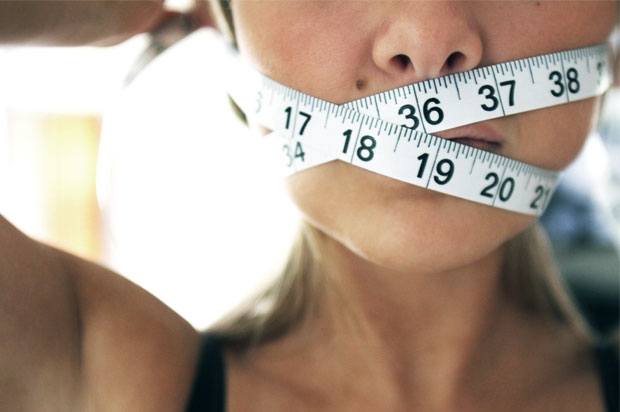What is addiction?
You can become addicted to literally anything - from Olivia Rodrigo to alcohol, there really is no discrimination when it comes to addiction. Uncovering the reasons why can be slightly more tricky though. Let’s figure it out together by understanding what exactly addiction is.

Let’s admit it. Life can become a bit repetitive sometimes. When you’re not bored, you’re probably stressed and so the cycle continues. Thank you, responsibility. So it’s not really a shock that young people get the occasional urge to bypass reality and indulge in ‘fun stuff’ like sex, shopping, drinking, taking drugs, gambling, or even computer games.
But when does indulgence become dependence? And are some people more likely to become addicts than others?
Addiction meaning
Addiction is a compulsion to use a substance, or persist with certain behaviour to ensure you feel good – or to avoid feeling crappy. An addiction falls into two categories: physical and psychological. It doesn’t even have to be a serious problem to be classed as an addiction. It can be any severity of addiction meaning anywhere from ‘mild addiction’ to ‘serious addiction’.
- Physical addiction occurs after you take a substance so much it actually alters your body’s chemistry. This means your body develops a hunger for this drug that you have to keep feeding. If you don’t, your body goes into withdrawal and you get all kinds of nasty symptoms until you feed it again.
- Psychological addiction is when your brain gets hooked to a particular substance or behaviour that ‘rewards’ it, i.e., makes you feel good. Kinda crazy right? An addicted brain can actually produce physical manifestations of withdrawal, including cravings, irritability, insomnia, and depression. The mind is truly a powerful thing.
When it comes to alcohol, nicotine and illegal drugs, it’s possible to develop either a physical addiction, psychological addiction, or a mixture of both.
Why/how do you become an addict?
Anyone who takes enough of a certain substance is at risk of becoming addicted to it. But people don’t usually overindulge in a particular substance when they’re living their best life. Most of the time there are underlying difficulties in an addict’s life that caused the addiction. This could be trauma in the family, abuse, neglect, trouble at school/work, or even self-esteem issues.
You might be wondering, what is addiction? Good news, it’s actually quite a logical process (all the STEM students, we’re looking at you to help us out). If something gives you positive reinforcement, of course you’re going to want to do it/take it again. It gives you pleasure, it’s fun, it’s enjoyable. The problem starts when you repeat the behaviour to get rid of a shitty feeling, and your life begins to revolve around it.
Read about Jane’s* real-life addiction story here.
Are some people more susceptible to addiction to others?
The phrase ‘addictive personality’ gets thrown around a lot but it has no scientific basis. “I like to tell clients that addiction is a great leveller,” says Dr Robert Hill, a consultant clinical psychologist. “No one is immune. Anyone can become an addict.”
BUT there are a few factors that can lead to addiction. There’s a genetic susceptibility to alcohol, and therefore alcoholism is likely to run in a family. This doesn’t mean you’re automatically going to be an alcoholic if a family member is one, but the risk is higher.
Being young is another contributor. Teenagers and people in their early 20s usually experiment with high-risk activities like drinking and drugs. Young brains aren’t wired to think about the long-term consequences of their substance use, which can make them more likely to overindulge. If you’re worried about your recent consumption, read this article on drug addiction.
Although there isn’t such a thing as an ‘addictive personality’, people who are sensation-seekers are generally more likely to experiment and can develop addictive behaviours. Poverty can also be a factor, as is growing up in an environment where other people are addicts.
“The main component is an intolerance of experiencing your emotions and being in the present,” says Dr Hill. “There’s an impatience to change one’s mental or physical state. But no personality ‘type’ is protected from addiction.”
What is addiction and what are the signs?
Although all different types of personalities and people can develop all types of addictions, the warning signs usually follow the same pattern, and include:
- An unhealthy focus on pursuing the substance/behaviour
- Excluding other activities that aren’t related to using
- Going out primarily to use
- Needing more of the substance/behaviour to get the same high
- Disregard for other areas of your life including relationships, your health, or career
- Withdrawal symptoms if substance/behaviour is prohibited
If it’s you who has an addiction, or a family member or friend, there’s help out there. You can always reach out to our free support services as well as the resources we have linked below. There are so many addiction treatment options, including behavioural therapies and more. You just have to take the first step and reach out.
Recognising you have an addiction is a seriously difficult thing to do. It’s an enormous step but once you’ve done it, you’re on your way to recovery.
*Names have been changed
Next Steps
- Addaction helps people recover from drug and alcohol addictions.
- Chat about this subject on our Discussion Boards.
By Nishika Melwani
Updated on 05-Aug-2021
No featured article








